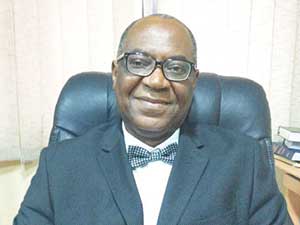President Goodluck Jonathan refused to assent to the constitution amendment bill sent to him by the National Assembly because some of the provisions of the amended constitution have to do with the promotion of the interest of the legislators and the whittling down of executive powers. In this interview, Law of Evidence professor at the University of Lagos, Taiwo Osipitan (SAN), bares his view to Senior Correspondent, ONYEWUCHI OJINNAKA, on some of the issues.
How do you view President Goodluck Jonathan’s refusal to give assent to the Constitution amendment bill?
The president has the right under the constitution to decline or assent to the amendment of the constitution and also not to have anything to do with it. He does not need any reason for his refusal to give his assent. But then, there is provision in the constitution that says, after 30 days, if he does not give his assent or convey his assent, the National Assembly can hold a joint sitting and pass it through a two-third majority, then the bill becomes law. The bill, which the president refused to assent to, borders on how to amend the constitution.
National Assembly may well be guided that this is not just an ordinary bill; it is one that has to do with the constitution. I want to believe that the power of the legislators to sit again, deliberate and decide on the bill to become law may not be possible any longer. When you want to amend the constitution, it is a joint responsibility of both national and states legislatures. And the National Assembly must have the two-third support of the Houses of Assembly.
Therefore, where you have a veto or refusal to assent to a bill by the president, one will expect the participation of the national and states’ assemblies. I think it is like the president withheld his assent in view of the fact that the National Assembly did not carry the House of Assembly along in deciding to amend the constitution.
How do you react to the proposition in the fourth amendment which favours the provision of life pension for former leaders of the National Assembly?
It appears quite immoral that people at the National Assembly, who do not attend to legislative matters on every working day, who take holidays at random, would be asking for life pension. The job of the legislator is not supposed to be a full time job, and pension for people doing a part-time job with all kinds of allowances already attached to it, is quite unreasonable. Again, we should be careful not to make these jobs too attractive or else you see people struggling for the job in such a manner that it will become a do-or-die affair, and people will want to get there at all costs, and you know what that means. We must demystify all these jobs and not attach any importance to them, than just a part-time job.
As a professor and senior member of the bar, what suggestions would you offer to the incoming administration of Muhammadu Buhari on how to improve the judicial sector, especially as the vice president-elect is a senior lawyer?
As a member of the noble profession, I believe that the government will respect the rule of law. They must also govern, based on the constitution. They must lead by practical examples and they must help us to restore nobility, respect and dignity in the legal profession. There must be no more skipping of court order or judgment, irrespective of who or what you are. The administration must stop a situation where members of the noble profession are assaulted with impunity without any prosecution of such people. The issue of contempt of court must not be allowed again. There are cases where a sitting governor just used thugs to lock up court premises for several weeks, even months, for fear of impeachment, and nothing happened. And I wonder what they will be doing at that particular period, because court is our workshop, and when the workshop is closed, what do you expect the lawyers, judges and other judicial workers of the affected courts to be doing? We have never had such before, but it is just sliding into a dangerous situation and it will do the legal profession and the public good if the incoming administration helps to put a stop to this development. If courts are not respected by the executive arm of government, the ordinary man who believes that court is the last hope will lose confidence in the court and he will resort to self-help. This too will lead to a state of lawlessness and anarchy. The government of Buhari must also take radical steps in appointing judges to the Court of Appeal and Supreme Court. People of merit should be appointed to appellate court to ensure confidence in the judiciary. I also want his government to deal with judges and lawyers who aid corruption.
Do you think the newly-amended evidence act is comprehensive enough?
The life of law is not based on anything else, except experience, and the evidence act of 2011 has gone a long way in addressing issues. But then there are some other gaps. They have removed one or two provisions which has the capacity to suffocate the evidence act in Nigeria. For example, Section 5(a) of the old evidence act, which was a general provision, allows lawyers to apply principles of law of evidence in cases where evidence law is silence on an issue or when there is a gap in the evidence act. That provision has been removed. One would not have worried if the National Assembly that is amending the evidence act is proactive regularly. That is not the case, this is the first time the evidence act is being amended since 2005. So we need to wait for another long time before it is amended again.
Again, they have introduced computer evidence act. That itself has many problems, and that is why that section is creating more problem than it wants to solve. Before you can tender a computer evidence in Nigeria, there must be a certificate from somebody who is into the system to confirm that the system is in working order at the time the evidence documents were reproduced. But then, if I have a case against a bank today and they are giving me a statement of account and I said I sue your bank that you proof that your machine is in working condition; which opponent will give a report against its interest? I think Nigeria has not developed to that level. That is one of the problems of that provision. Though, new rules and new developments have taken place, there is still more to be done. We need to go back to the drawing table to look at the evidence act again and correct some of the gaps there.














